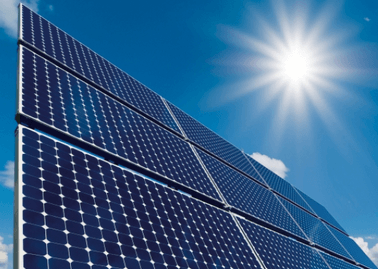Germany commits €100m for renewable energy expansion in Ghana
 Germany has committed €100 million to Ghana under a Memorandum of Understanding to expand renewable energy in Ghana.
Germany has committed €100 million to Ghana under a Memorandum of Understanding to expand renewable energy in Ghana.
The agreement formed part of the G-20 Compact with Africa for sustainable economic development.
The partnership is geared towards the production of renewable energy and efficient energy sources complemented with technical education.
Mr Christoph Retzlaff, the German Ambassador to Ghana, made the disclosure at the Third Ghana Renewable Energy Fair and Exhibition, organised by the Energy Commission, in Accra.
The three-day event is on the theme: “Renewable Energy: An Engine for Distributed Wealth Creation”, which brought together renewable energy experts to discuss how the country could take advantage of the abundant solar energy resource to reduce utility costs.
The fair has become an annual platform for stakeholders in the renewable energy industry to promote renewable energy technologies and innovation.
Mr Retzlaff said: “Germany and Ghana are focused on strengthening competition on power generation and make the renewable energy sector a shining example, to reduce the cost of power generation, introduce open and competitive bidding and get best value for money from investors”.
He said Germany was on transition from the use of fossil fuel to renewable energy because the latter reduced carbon emissions, with lower cost of power generation.
The German Ambassador expressed the optimism that renewable energy sources would provide affordable utility costs to the small and medium-scale enterprises.
Mr Retzlaff lauded the Government’s resolve to install solar energy panels at the various Ministries, Departments and Agencies and, therefore, pledged Germany’s commitment to provide technology and technical assistance towards that cause
He commended the Government of Ghana for creating a favourable investment environment and noted that, renewable energy would play a vital role in spurring economic growth.
Professor George Panyin Hagan, the Board Chairman of the Energy Commission, said promoting the cultivation of woodlot plantations for fuel would reduce the depletion of the country’s biomass resources.
It would also provide an easy access to sustainable fuel-wood for charcoal production thereby improving the livelihoods of people operating in the fuel-wood industry, he said.
Prof. Hagan said: “It is for this reason that the Energy Commission initiated the Sustainable Woodlot Plantations for Schools Programme in 2014, to promote the cultivation of fast growing tree species on school lands”.
He said the Commission was ready to support investors who were interested in venturing into renewable energy production.
Source: GNA
